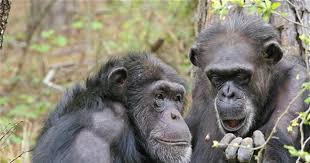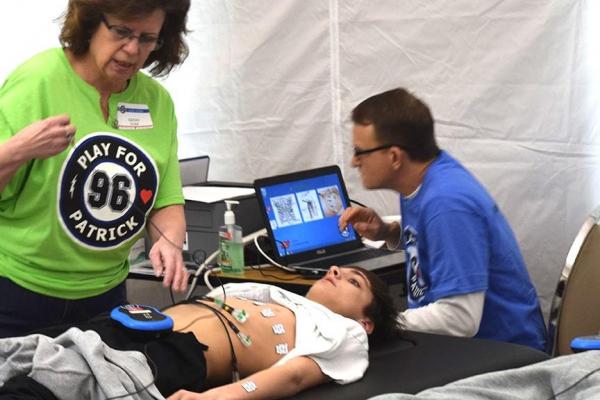Chimps suffer same heart condition that kills young athletes

Islamabad: In chimpanzees, researchers have identified the same hidden heart disease that has been blamed for the sudden deaths of basketball players, soccer players and other young athletes on the field.
The rare, often inherited condition, arrhythmogenic right ventricular cardiomyopathy (ARVC), is characterized by a buildup of fatty and fibrous scar tissue on part of the heart. It can cause irregular heart rhythms and lead to sudden cardiac arrest during strenuous physical activity in otherwise healthy people. It typically doesn’t have any symptoms and disproportionately affects men.

In a first, researchers spotted signs of the disease during the autopsies of two juvenile chimpanzee half-brothers that had been living at a zoo in the United Kingdom.
In 2008, chimpanzee No. 1 (as he’s called in the study) collapsed in his enclosure, without showing any earlier signs of distress or being involved in any fights with the other animals. He later succumbed to cardiac arrest as veterinarians tried to intervene. He was only 16. (The average chimp life span is thought to be around 40 to 45 years, though some in captivity have lived well into their 70s. Cheetah, the chimpanzee sidekick in the 1930s Tarzan films, died at age 80 in 2011.)
Four years earlier, the ape’s half-brother, dubbed chimpanzee No. 2, was found dead at age 17, with no previous signs of bad health or injuries, the researchers said.
One of the study’s authors, Mary Sheppard, a specialist in human sudden cardiac death at Imperial College London, was part of the team that helped perform the autopsies on both apes. In the chimpanzees, Sheppard saw heart lesions that were nearly identical to the ARVC heart abnormalities that put humans at a high risk of sudden death.
“It is the first description of this condition in a primate species apart from humans,” study author Lydia Tong, of the University of Sydney in Australia, said in a statement. “The circumstances of these two cases in chimpanzees mirror the common presentation of the condition in humans. The two half-brother chimps were teenagers apparently at their peak health, and one of the chimps died suddenly during physical exertion.”
The researchers say it is not yet clear what causes the disease in chimpanzees.
“In humans we know that there is a genetic component in about 50 percent of cases but the other factors are not well understood,” Tong said.
“It has been theorized that viral exposure, levels of exercise, and dietary variables may influence development of the condition in humans,” she added. “More work needs to be done to determine if the same genetic changes may be occurring in affected chimpanzees, and whether other influences [are] at play.”
In the past two decades, cardiovascular disease has overtaken infectious disease as the leading cause of death among chimpanzees in captivity, the researchers said in their report. Future research could help caretakers understand and manage heart conditions in chimpanzees.
Since the endangered apes are also the closest living relatives to humans, further study of ARVC in chimpanzees could lead to new understandings about how the disease affects people, Tong said.





